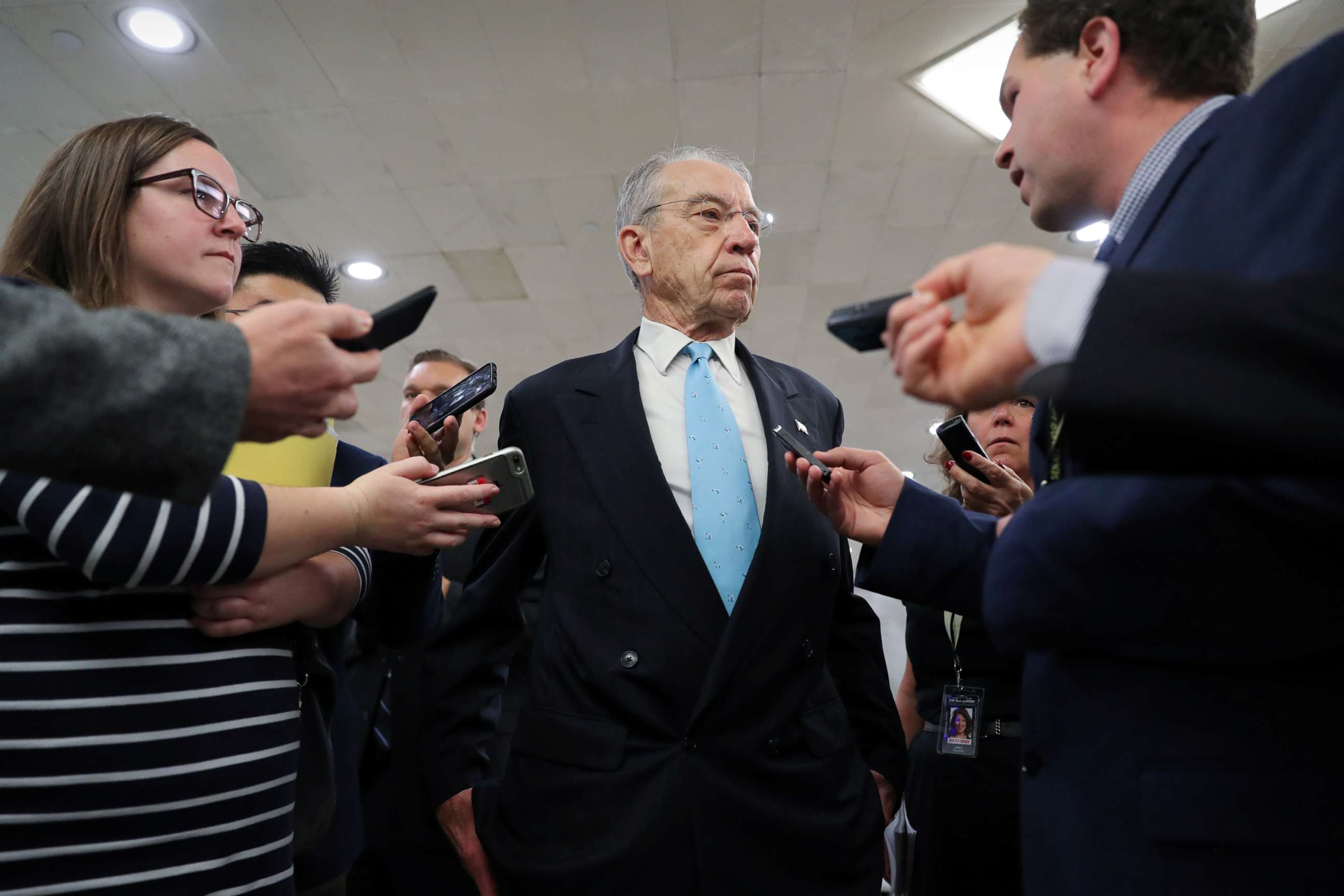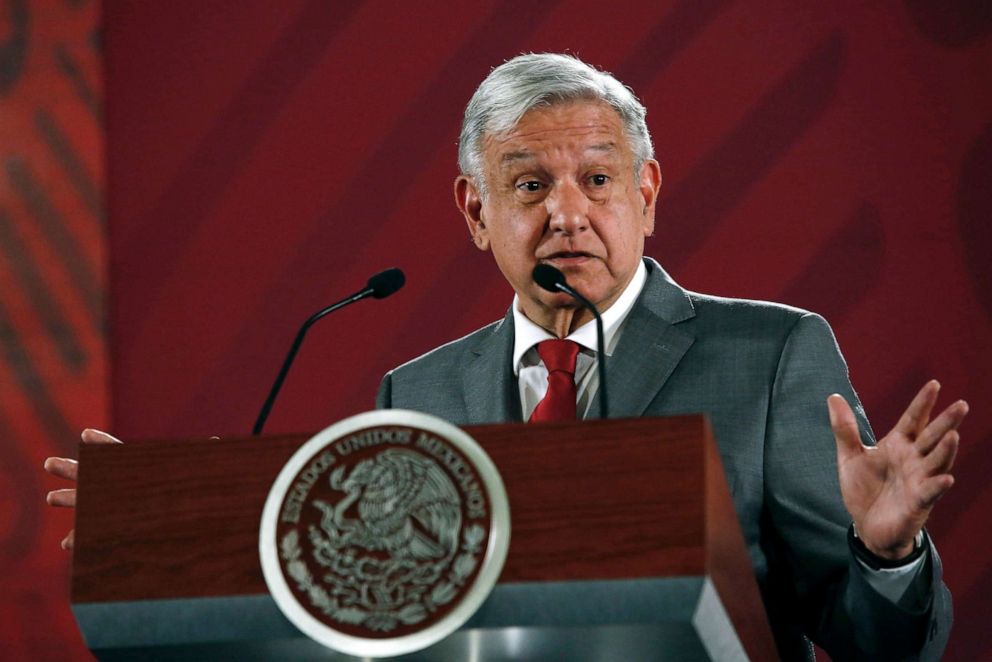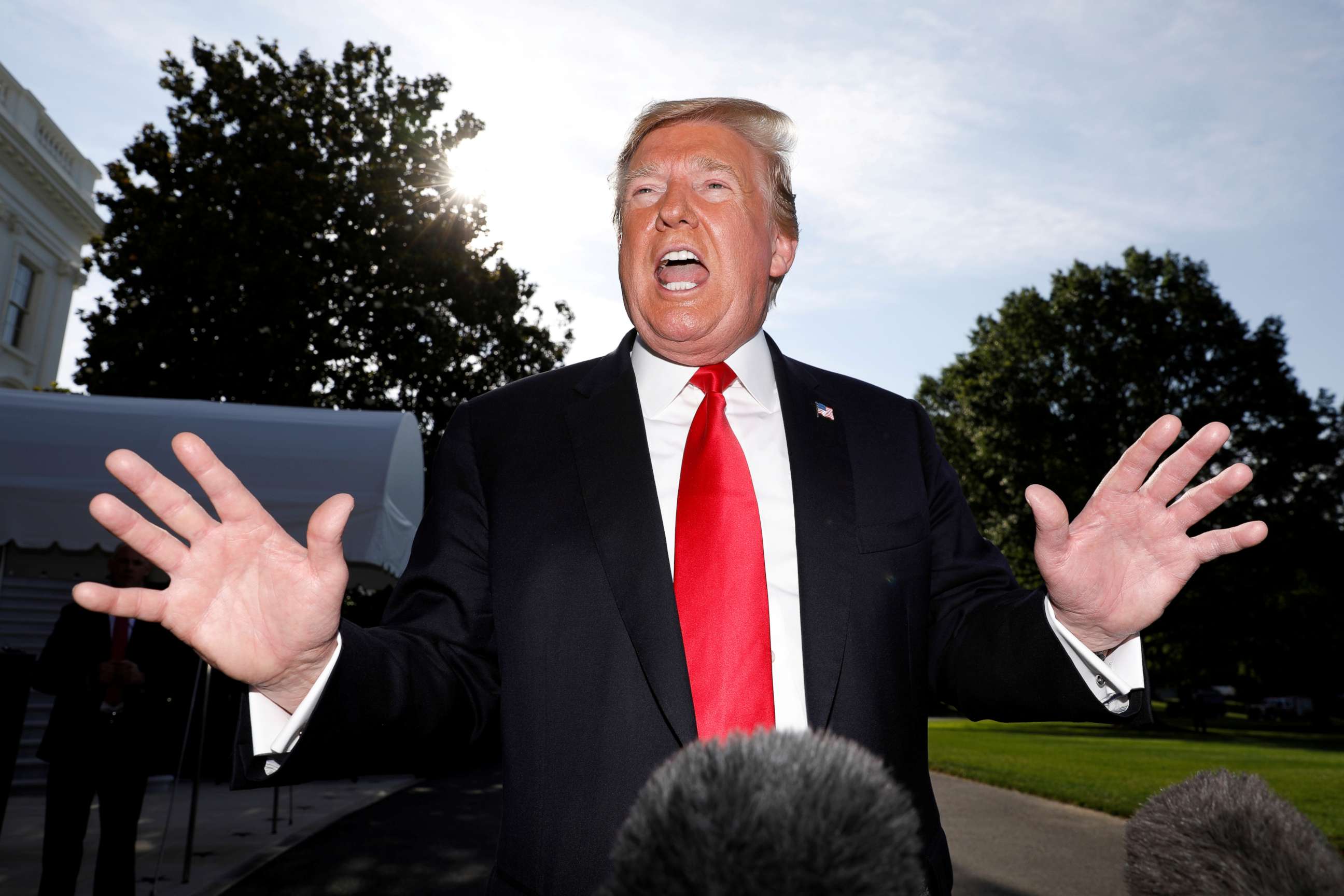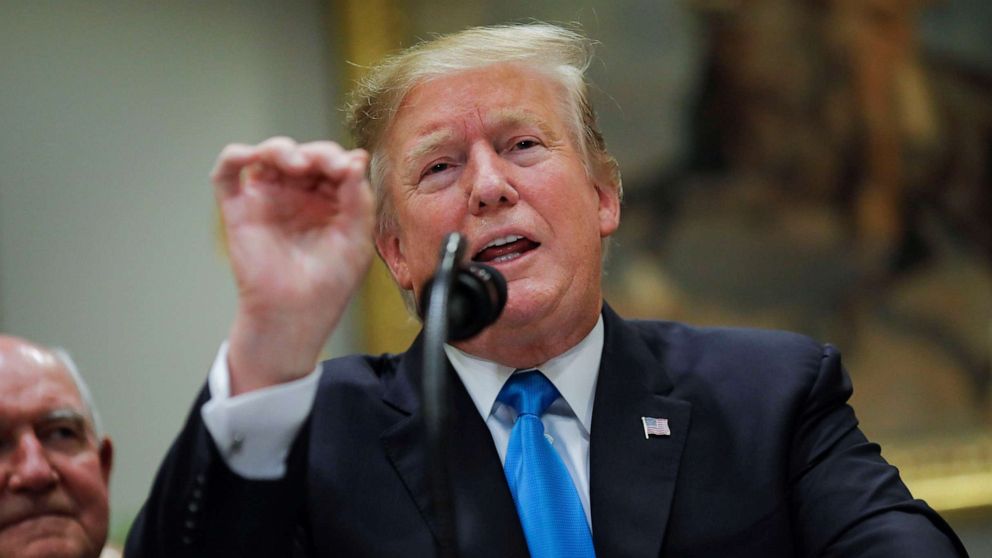Trump defends 5% tariff threat as Mexico's president calls it a 'provocation' and GOP senator slams it as a misuse of authority
President Donald Trump and the White House on Friday defended his threat to impose a 5% tariff on all goods coming in from Mexico as that country's president called it a "provocation" and a high-profile Republican senator slammed the move as a "misuse of presidential tariff authority."
The pro-business U.S. Chamber of Commerce said "imposing tariffs on goods in Mexico is exactly the wrong move because these tariffs will be paid by American families and businesses without doing a thing to solve the very real problems at the border."
Trump said Thursday night the tariff, to begin June 10, would be punishment for what he says is Mexico's willingness to let refugees transit its borders en route to the U.S. to claim asylum.

Sen. Chuck Grassley, the senior Republican from Iowa and chairman of the Senate Finance Committee, called Trump's proposed tariffs on Mexico to enforce immigration policy "a misuse of presidential tariff authority and counter to congressional intent."
“Trade policy and border security are separate issues," he said in a statement, saying alternatives could pressure Mexico "without imposing a financial burden on U.S. consumers or harming American jobs."
"I support nearly every one of President Trump’s immigration policies, but this is not one of them," he said. "I urge the president to consider other options.”
White House press secretary Sarah Sanders told reporters on Friday that Trump did not blindside his own party by the announcement.
"If Republicans weren't aware, they haven't been paying attention," Sanders said. "Anyone surprised by this has been living under a rock."
Iowa's other Republican senator, Joni Ernst, said "the livelihoods of Iowa farmers and producers are at stake."
"While I support the need for comprehensive border security and a permanent fix to illegal immigration, this isn’t the right path forward. I’m asking the president to reconsider, and for Democrats to work with us to find a solution to the humanitarian crisis at our southern border,” Ernst said in a statement.
Senate Republican Leader Mitch McConnell urged caution, saying that while he backs the president on the border crisis, any proposal that affects the U.S.- Mexico economic relationship deserves "serious examination."
The president defended the move Friday morning on Twitter saying, "In order not to pay Tariffs, if they start rising, companies will leave Mexico, which has taken 30% of our Auto Industry, and come back home to the USA. Mexico must take back their country from the drug lords and cartels. The Tariff is about stopping drugs as well as illegals!"

Mexican President Andres Manuel Lopez Obrador, in a news conference Friday, said "we are not going to fall into any provocation ... we will act with prudence, with respect to the United States authorities, with respect to President Donald Trump. We believe that all conflicts in bilateral relations must be dealt with, be resolved with dialogue, with communication.
"It does not lead to any good, the use of coercive measures," he said. "We have to act prudently."
Although he stressed he does not want confrontation, proposed more dialogue and said he was sending an envoy to Washington, he added, "We are fulfilling our responsibility in immigration policy."
Sanders said Friday that Trump has not spoken directly to Mexico's president, but said the teams are in communication.
In his initial response Thursday night, after parrying Trump’s provocations for months, he also took his strongest swipe at him to date. He asked how Trump turned a country that was the most friendly to immigrants into a “ghetto" where those who seek freedom are mistreated and expelled.
"The Statue of Liberty is not an empty symbol," he wrote.
He also called "America First" a "fallacy" because he said justice and friendship will prevail over borders.
In Mexico, trade negotiator Jesus Seade spoke to The Associated Press Thursday night and expressed a mix of alarm and dismissal. He called the matter “most serious,” but also downplayed the likelihood the tariffs would go into effect.
“It is no secret to anyone that Trump is very active in his use of Twitter and he launches many tweets that are later changed,” he said.

The move risks serious gains in the U.S. economy, as many economists believe American consumers always end up paying the price of tariffs on imported goods. But Mulvaney said Americans were already paying the costs of illegal migration.
"At any given moment, up to 100,00 migrants are transiting through Mexico on their way to the U.S. border," McAleenan said.
"The status quo is unacceptable and clear getting worse," he added.
Under the new plan, the initial tariffs on all goods would be imposed on June 10. But the rate would jump from 5% to 10% on July 1 and continue climbing by 5% each month unless Mexico takes action to "dramatically reduce or eliminate the number of illegal aliens crossing its territory into the United States," according to a White House statement.
The plan would call for increasing the tariffs further, going as high as 25% by October if Mexico didn’t curb migration.
White House officials said they were confident that Mexico could resolve the problem of migration that Trump and U.S. lawmakers have been unable to address.
"If that means taking the tariffs to 25%, that means taking the tariffs to 25%," said acting White House chief of staff Mick Mulvaney. "We hope, sincerely hope it does not come to that."
Mulvaney said "it is our very firm belief that the Mexican government can and needs do more to help us with the situation on the southern border."
ABC News' Anne Laurent, Ben Gittleson and Mariam Khan contributed to this report.




